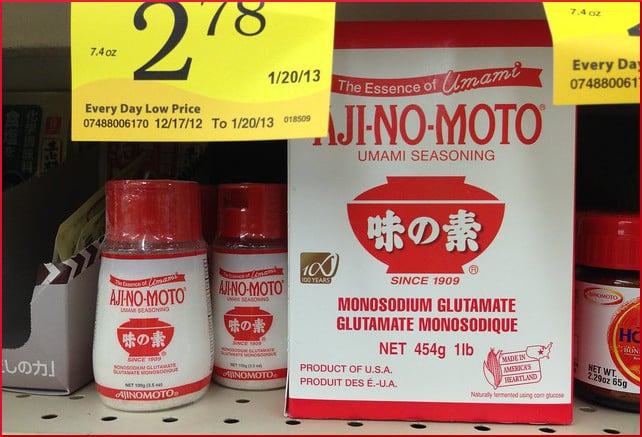
MSG is the commercial additive form of glutamic acid, and it provides the taste sensation known as umami, which is called the fifth flavor. It is naturally found in protein-heavy foods, and may be described as savory, meaty, or more-ish. It is hedonic in that it exists solely in the service of pleasure, and is one of the substances added to give food that irresistible “hyperpalatable” quality. After looking back at what has been discussed so far, we will add to the cache of knowledge.
In one post we talked about excitotoxins, a matter of concern because they cause spastic overactivity that damages neurons, perhaps even to the point of contributing to the neuronal cell death that characterizes a stroke. Where does obesity come into this? Dr. Russell Blaylock has suggested a mechanism: Excitotoxins damage the hypothalamus (weight regulation area) and the pancreas (blood sugar regulating organ) and next thing you know, you have an obesity situation on your hands.
A controversial figure, Dr. Blaylock believes the three main causes of obesity are Vitamin D3 insufficiency, too many vaccinations, and way too much MSG. He calls the substance an excitotoxic food additive, and it is not the only one. The artificial sweetener aspartame, coincidentally manufactured by the same corporation that gave us MSG, is another.
Although the pathways of causation are not clear, researchers have noted that inflammation and obesity are often associated. Many of the foods and additives that obese patients are warned against are also known to cause systemic inflammation. They include sugar, saturated fats, refined carbohydrates, casein, aspartame, alcohol, and — wait for it — MSG.
Danger on every side
Other writers also warn of addictive additives. These substances must be powerful indeed, if they can divert young people away from the more age-appropriate goal of wanting to be attractively toned into the wilderness of helpless overeating.
But take an alleged food product like potato chips, which Dr. Pretlow has learned from his young informants to regard as one of the most troublesome things on the market. Chips combine the attraction of a process addiction (plenty of satisfying crunch in the chewing) with the lure of an addictive substance, which salt may very well be. Nobody thinks of it that way, of course, but ask the average diner to stick with unsalted food for a week and see what happens.
As we discussed in “Hyperpalatable Foods: Science or Science Fiction? Part 4,” it is not by accident that foods, in the processing, are made super-tasty and seemingly addictive. They are carefully and deliberately engineered to be irresistible.
While some barriers still remain to keep cigarettes, alcohol, and hard drugs from children, sweets and junk food are not that hard to come by. In some circles, kids learn pretty fast that adults’ desire to be left unbothered can be parleyed into bribes of edible treats.
Your responses and feedback are welcome!
Photo credit: Ben Chun on Visualhunt/CC BY-SA

 FAQs and Media Requests:
FAQs and Media Requests: 












One Response